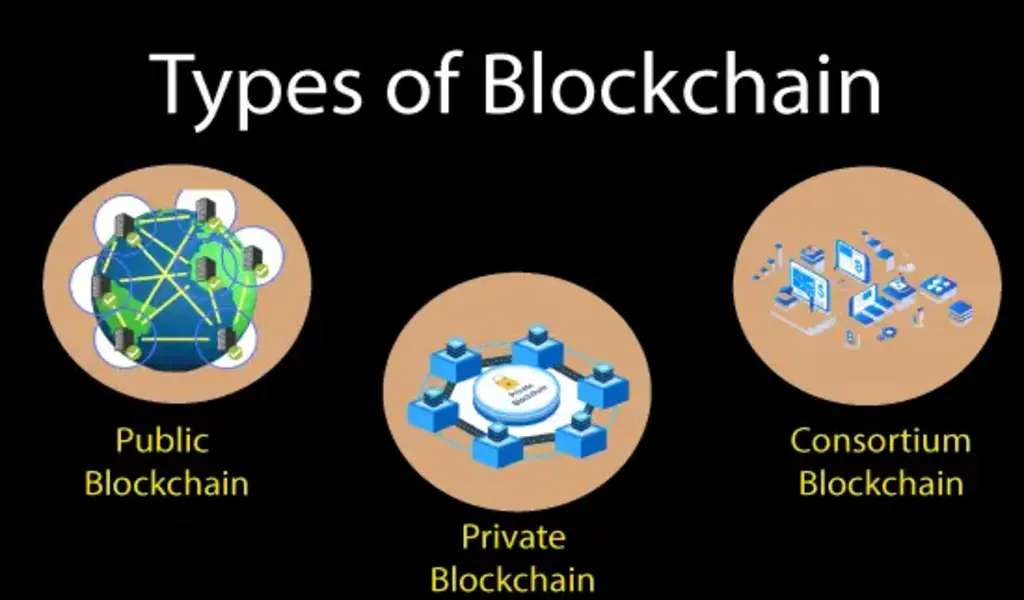Tech
Types of Blockchain Public and Private

Blockchain is based on the ledger of all transaction records which are known as blocks which are interconnected with cryptography. Each blockchain is involved with the cryptographic hash of the previously-existing block, the transaction data available on the network, and a timestamp between the transactions. The design of the blockchain resists tampering by anyone as per its design.
However, it is an open distributed ledger where the transaction details were recorded as executed between the two parties very efficiently and also in a different variable form in a permanent way.
In general, blockchain technology is based on the peer-to-peer protocol. for inter-node communication and upgrading the new blocks.
The data available in the specific blocks are not able to be altered by anyone retrospectively without influencing all following blocks, which necessitates network plurality partnership. Discover how DeFi plays a pivotal role in the transformation of banking applications.
Types of blockchain
The category of blockchain is bifurcated into four categories which are as follows:
1. Private Blockchain
The most restricted and limited in terms of its access protocols, blockchain is known as the private blockchain. This type of blockchain is very useful for categories like outer organisations, or individual people. This type of blockchain provides users with an overall perspective only, and they are incapable of seeing any marketing elements.
However, these sorts of block gains are preferred by the big companies (such as banks) that address susceptible data and do not wish their adversaries to consider the data stored in their ledgers. Data reserved on private blockchains are not able to get viewed without authorization from an authorised person within the corporation.
They were frequently utilised internally and (within corporations) to furnish secure access to information that was not brought in functional via the World Wide Web before the early years.
Pros
- Make a prototype of blockchain– as blockchain can be conveniently implemented, examined, and deployed, thus an instant prototyping cycle will significantly be dropped.
- Replicated revamps – as updates are reported to the concerned database servers similarly across the blockchain network, firms no longer have to bother about differences.
Cons
There are no transaction records available for non-crypto users in public
It is not transparent and not anyone can use it publically.
High risk is involved due to the complicity among the network in the private blockchain.
We cannot trust anyone among all the participant
2. Public Blockchain
These permissionless blockchains mean that maybe anyone can point with them even if she is available with internet security constraints. As anyone with the facility of the internet can easily join the network as a node, for example, Ethereum and blockchain.
Where open network means anyone can join the network with the availability of an Internet Connection. Through this connection, they can join the node on the network just like Bitcoin and Ethereum.
Whereas in the case of a public blockchain, they are like open-source projects which means anyone can make changes in its coding or acquisition to their codebase. It is possible that a public blockchain can be easily operated under a centralised group of developers as per the prototype of its white paper, but eventually, it is controlled by the consensus of its users.
Pros
It is a more usable and scalable public blockchain
Just like private blockchain, it also has stricter checkpoints
The stability and privacy factor is more in Public blockchains
Its data is more authentic
Its Abilities are better than Blockchain technology
Blockchain has a wider range of applicability.
Cons
No permission is required to make changes in public blockchains
No provision of privacy protocols imposed on a public blockchain
The low speed of the network due to complexity occurred on the public blockchain
Charges applicable for the use of public blockchain
Conclusion
Blockchain technology is involved with a lot of modern techniques and computing power. It has the huge potential to disrupt many enterprises and modify the way we win our business forever.
Moreover, some developers are also ready to set bars for which blockchains can communicate with each other and also with non-blocking services as well. This is how a business will decide whether it should invest in blockchain technology or he should be strict with the tried-and-true approaches.
SEE ALSO: The Future Of The Internet: What Happens If Google Loses Its Antitrust Battle?





























